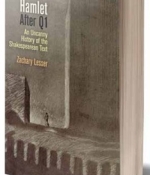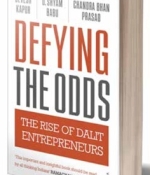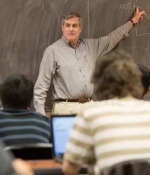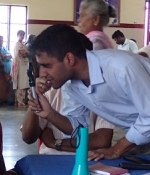2015
David Brownlee Named Fellow of the Society of Architectural Historians
David Brownlee, Frances Shapiro-Weitzenhoffer Professor of 19th Century European Art, has been named a Fellow of the Society of Architectural Historians. The Society selected him as one of four fellows for the 2015 induction for his lifelong scholarly commitment to architectural history.Read the full story here.
Gift of $1 Million Will Grow Visual Studies Program Over Next 10 Years
One of Penn’s most interdisciplinary offerings—the Visual Studies Program in Penn Arts and Sciences—will expand thanks to a generous gift of $1 million over the next decade. New initiatives will include undergraduate research support, internships, course development, and greater connections between current students and alumni.
Penn Urban Studies Major Wins Truman Scholarship
Penn Arts and Sciences junior Adam Cohen is one of 60 students nationwide to be awarded a Harry S. Truman Scholarship. The scholarships are granted to students who plan to pursue careers in public service or government and who wish to attend professional or graduate school to do so. Cohen, an urban studies major, focuses on evidence-based social policy improvements in Pennsylvania and Maine.
Penn Psychologists Find Self-Distancing Helps Adolescents Handle Negative Emotions
In a new study published in the journal Child Development, Associate Professor of Psychology Angela Duckworth and doctoral candidate Rachel White show that adolescents who step back from their own point of view when experiencing negative emotions become less upset by their feelings. When students used self-distancing strategies, they were able to reconsider what happened in more meaningful and insightful ways.
Two Penn History Professors Awarded Guggenheim Fellowships
Arlin M. Adams Professor of Constitutional Law and Professor of History Sarah Barringer Gordon and Professor of History Kathleen Brown have won 2015 John Simon Guggenheim Memorial Foundation fellowships. Out of 3,100 applicants, 175 fellows were chosen on the basis of prior achievement and exceptional promise.
Statement from Dean Steven Fluharty on the Future of African Studies in the School of Arts and Sciences
The School of Arts and Sciences has decided to consolidate the current activities of the Africa Center, shifting the administration of its programming and non-language teaching activities to the Center for Africana Studies, and the administration of the language teaching programs to the Penn Language Center. These consolidations will take effect July 1, 2015.
College Announces 2015 Graduation Speakers
Maria T. Zuber, C’80, E.A. Griswold Professor of Geophysics and Vice President for Research at the Massachusetts Institute of Technology, and Nadia Y. Laher, C’15, will speak at this year’s graduation ceremony for the University of Pennsylvania College of Arts and Sciences. The event will take place on Sunday, May 17, at 6:30 p.m. at Franklin Field.
Penn Arts and Sciences Faculty, Grad Students Receive Teaching Awards
Steven J. Fluharty, Dean of Penn Arts and Sciences, and Dennis DeTurck, Stephen A. Levin Dean of the College, have announced the recipients of the School’s 2015 teaching awards. The winners will be honored at a School-wide reception on Thursday, April 30, at 4 p.m. in 200 College Hall. Ira H. Abrams Memorial Award for Distinguished TeachingMark Devlin, Reese W. Flower Professor of Astronomy and Astrophysics in Physics and Astronomy
Penn Arts and Sciences Professors and Students Return to Hadron Collider
Four University of Pennsylvania physics and astronomy professors, along with their students and post-docs, will soon be returning to the Large Hadron Collider at the European Organization for Nuclear Research (CERN) to continue their research. They were a vital part of the Higgs boson breakthrough at CERN in 2012.
Penn Arts and Sciences Senior to Launch Girls’ School, Community Clinic in Ghana with President's Engagement Prize
Shadrack Frimpong, C’15, plans to launch a community clinic and girls’ school in Ghana with funds he will receive as one of the inaugural winners of the University of Pennsylvania President’s Engagement Prize. The President’s Engagement Prizes, the largest of their kind in higher education, provide winners with as much as $100,000 to support project implementation and $50,000 for living expenses. Frimpong is a biology major with extensive global health coursework.
Penn Researchers Create Largest Map Yet Of Dark Matter In The Cosmos
Members of the Dark Energy Survey have released the first in a series of maps that show the concentration of dark matter in the cosmos. The images will improve researchers’ understanding of dark matter’s role in the formation of galaxies, and enable scientists to probe the nature of dark energy. The two-year long effort was centered in the research group of Bhuvnesh Jain, Edmund J. and Louise W.
Penn Arts and Sciences Faculty Receive NEH Grants
The National Endowment for the Humanities has awarded Grant Frame, an associate professor of Near Eastern languages and civilizations, a two-year $250,000 grant for his Royal Inscriptions of the Neo-Assyrian Period Project (RINAP).
Penn Researchers Demonstrate New Configurations for Water-Based Liquid Crystals
In a new study published in the Proceedings of the National Academy of Sciences, researchers from Penn Arts and Sciences and Swarthmore College demonstrate new configurations for water-based liquid crystals. The research, by led by Department of Physics and Astronomy postdoctoral fellow Joonwoo Jeong and graduate students Zoey Davidson and Louis Kang, advances the class of materials’ viability for use in a variety of technological, biological, and medical applications.
New Penn Program in Single Cell Biology
The Penn Program in Single Cell Biology (PPSCB) is a new effort by faculty members Junhyong Kim, Patricia M. Williams Term Professor in Biology, and James Eberwine, Elmer Holmes Bobst Professor of Pharmacology in the Perelman School of Medicine. The PPSCB focuses on individual cell biology. It is sponsored by the National Institutes of Health Single Cell Analysis program and is one of only three such centers worldwide. PPSCB’s emphasis is on heart and brain cells.
Three Arts and Sciences Faculty Named to Endowed Chairs
Dean Steven J. Fluharty is pleased to announce the naming of three faculty members to endowed chairs in the School of Arts and Sciences.
Fels Hosts Fourth Annual Public Policy Challenge National Invitational in Philadelphia
On March 22, the Fels Institute of Government at the University of Pennsylvania and Governing, the publication of record for state and local leaders, hosted the Fourth Annual Public Policy Challenge National Invitational at the National Constitution Center in Philadelphia.
Chemistry Researchers Create New Light-Bending Metamolecules
Researchers at the University of Pennsylvania have devised a way of mass-producing metamaterials, which are structures that have physical properties not found in nature. Recent chemistry Ph.D. graduate and lead author Zhaoxia Qian worked with Assistant Professor of Chemistry Zahra Fakhraai and Nader Engheta of SEAS to create light-bending structures that look like nanoscopic raspberries.
Earth and Environmental Science Researchers Develop New Riverbed Erosion Modeling Technique
In a study published in Nature Communications, Associate Professor of Earth and Environmental Science Douglas Jerolmack reveals his new model for predicting riverbed erosion. Theoretical models, which use principles of physics to predict patterns of sediment transport in rivers, have rarely matched observations from nature. Jerolmack's study, which used his custom laboratory apparatus, more closely aligns with what is seen in nature.
Penn Announces New Undergraduate Minor in Psychoanalytic Studies
Penn Arts and Sciences has established a new undergraduate minor in psychoanalytic studies, making it one of the few schools in the world to offer this opportunity.
College Alumna Wins Gates Cambridge Scholarship
Jocelyn Perry, C’13, has won a Gates Cambridge Scholarship to pursue a graduate degree at the University of Cambridge in the United Kingdom. She is among 40 U.S. recipients of Gates Cambridge Scholarships this year.
Penn Researchers Discover New Method for Making Graphene Alternative
In a study published in the journal Nature Communications, a research team led by Professor of Physics and Astronomy Charlie Johnson revealed a new technique for making molybdenum disulfide, a potential graphene competitor. Graphene, a single-atom-thick lattice of carbon atoms, is often touted as a replacement for silicon in electronic devices due to its high conductivity and thinness.
Dorothy Roberts Awarded American Council of Learned Societies Fellowship
George A. Weiss University Professor of Law and Sociology Dorothy Roberts has been awarded an American Council of Learned Societies (ACLS) fellowship for her book project Interracial Marriage and Racial Equality in Chicago. For nearly 90 years ACLS has provided fellowships for scholars in the humanities and related social sciences. Roberts is an acclaimed scholar of race, gender, and the law who joined the University in 2012 as its 14th Penn Integrates Knowledge Professor.
Professor Fakhraai Awarded Sloan Research Fellowship
Assistant Professor of Chemistry Zahra Fakhraai has received a Sloan Research Fellowship. Since 1955, the Alfred P. Sloan Foundation has granted yearly fellowships to early-career scientists and scholars whose achievements and potential identify them as the next generation of scientific leaders. To qualify, candidates must be nominated by their peers and selected by an independent panel of senior scholars. Each fellow receives a $50,000 award to further his or her research.
Richard Dunn Is Finalist for George Washington Book Prize
Roy F. and Jeannette P. Nichols Professor Emeritus of American History Richard S. Dunn is one of four finalists for the 2015 George Washington Book Prize. One of the nation’s largest and most prestigious literary awards, the $50,000 prize recognizes the best new books on early American history. It is sponsored by the Gilder Lehrman Institute of American History, George Washington’s Mount Vernon, and Washington College.
Penn Arts and Sciences Names 2015 Dean’s Scholars
Penn Arts and Sciences has named 20 students from the College of Arts and Sciences, the College of Liberal and Professional Studies, and the Graduate Division as 2015 Dean’s Scholars. This honor is presented annually to students who exhibit exceptional academic performance and intellectual promise. The 2015 Dean’s Scholars were formally recognized as part of the Levin Family Dean’s Forum on February 19. College of Arts and Sciences
Two College Students Receive Thouron Awards to Study in U.K.
Two College of Arts and Sciences students have received Thouron Awards to pursue graduate studies in the United Kingdom. The scholarship recipients are:• Vinicius Ferreira of Deerfield Beach, Fla., majoring in chemistry and a submatriculant in the chemistry master’s program, is applying to the University of Cambridge for a master’s degree in physics. Last year he was named a Dean’s Scholar by Penn Arts and Sciences.
Adrian Raine Awarded Honorary Degree
The University of York in England has awarded an honorary degree to Adrian Raine, Richard Perry University Professor of Criminology and Psychiatry. Raine is a world-renowned expert in the neurobiological causes of antisocial and violent behavior in children and adults, as well as the potential for preventing future crime and the neuro-ethical implications of this effort.
Brainard Receives Stein Innovation Award from Research to Prevent Blindness
David Brainard, RRL Professor of Psychology in Penn Arts and Sciences and director of the Vision Research Center and the Institute for Research in Cognitive Science at the University of Pennsylvania, has received a $300,000 Research to Prevent Blindness (RPB) Stein Innovation Award. In addition, Penn Medicine’s Department of Ophthalmology has been awarded a $115,000 grant from RPB to support research into the causes, treatment, and prevention of blinding diseases.
Gift Creates a Lab for the Digital Humanities at Penn
A $7 million gift from Penn Arts and Sciences Overseer Michael J. Price, W’79, and his wife, Vikki, will establish the Price Lab for the Digital Humanities.
Penn Arts and Sciences Appoints Three Term Professors
Dean Steven Fluharty is pleased to announce the appointment of three endowed term professors in the School of Arts and Sciences.
Penn Arts & Sciences Magazine: Hamlet's Ghost
To be, or not to be, I there’s the point,To Die, to sleepe, is that all?
Penn Arts & Sciences Magazine: Defying the Odds
In Defying the Odds: The Rise of Dalit Entrepreneurs, Director of the Penn Center for the Advanced Study of India (CASI), Madan Lal Sobti Associate Professor for the Study of Contemporary India, and Associate Professor of Political Science Devesh Kapur relates the underdog story of 21 Dalit (previously known as “untouchable”) entrepreneurs in India who overcame the stigma of their caste to achieve financial success.
Penn Arts & Sciences Magazine: Scientists-In-Training
The first goal for most aspiring scientists and engineers is developing a research path—not creating a proposal to pitch to a room full of people. That’s where the Vagelos Integrated Program in Energy Research (VIPER) differs. The dual-degree program, founded through the generosity of Trustee Emeritus P.
Penn Arts & Sciences Magazine: Scary Outbreaks Distort Our Priorities
Ebola is inescapable. A recent Google News search turned up the following numbers of hits: Malaria: 98,900 Heart disease: 126,000AIDS: 524,000Ebola: 28.1 million
Penn Arts & Sciences Magazine: Penn Linguist Knows What Not to Say and How to Say It
“We want to know what structures are possible in a human language and what are impossible,” says Julie Anne Legate, associate professor and chair of undergraduate studies in linguistics. Legate’s recent book, Voice and v: Lessons from Acehnese, takes on this problem by exploring the boundaries of passive voice sentence structure.
Penn Arts & Sciences Magazine: Democracy May Be Less Deliberative Than You Think
Eighteenth-century philosopher Adam Smith referred to individual self-interest as the “invisible hand” of the market. Robert Kurzban, professor of psychology and departmental director of undergraduate studies, and senior researcher Jason Weeden believe that the same impulse has a significant influence on political decisions made by individuals and groups.
Researchers Take Another Step Toward Use of Graphene in Electronics
Graphene, a one-atom thick lattice of carbon atoms, may one day become the new heart of electronics. Its speed and virtual two-dimensionality make it an attractive alternative to silicon, but several obstacles remain. Now Professor of Chemistry Andrew Rappe's research group, working with colleagues at the University of California, Berkeley, and the University of Illinois at Urbana-Champaign, has made inroads in solving one such hurdle.
Kathryn Hellerstein Wins Barbara Dobkin Book Award
The Jewish Book Council has named Associate Professor of Germanic Languages and Literatures Kathryn Hellerstein the recipient of the 2014 Barbara Dobkin Award for Women’s Studies for A Question of Tradition: Women Poets in Yiddish, 1586-1987. The National Jewish Book Awards highlight the best new English-language Jewish books and authors.
Joshua Plotkin Awarded 2015 Akira Okubo Prize
Professor of Biology Joshua Plotkin has been named winner of the 2015 Akira Okubo Prize, awarded by the International Society for Mathematical Biology and the Japanese Society for Mathematical Biology. The prize honors scientists “for outstanding and innovative theoretical work, for establishing superb conceptual ideas, for solving tough theoretical problems, and/or for uniting theory and data to advance biological science."
Dorothy Roberts to Receive APA’s 2015 Fuller Award
The American Psychiatric Association has named George A. Weiss University Professor of Law and Sociology Dorothy Roberts as the recipient of the 2015 Solomon Carter Fuller Award in recognition of her demonstrated leadership and exceptional achievements. The award honors “a Black citizen who has pioneered in an area which has significantly benefitted the quality of life for Black people.”
Penn Trustees Approve Design for Perelman Center for Political Science and Economics
The Ronald O. Perelman Center for Political Science and Economics has received final design approval from the University of Pennsylvania Board of Trustees. The project, which incorporates the rehabilitation of the existing West Philadelphia Title and Trust Company building at 36th and Walnut Streets with a significant addition to its north, is in the first stages of construction.
Penn Psych Study Shows Twitter Can Predict Rates of Heart Disease
In a new study published in the journal Psychological Science, Penn researchers demonstrate that Twitter can capture more information about heart disease risk than can traditional risk markers. They found that expressions of negative emotions in a given U.S. county’s tweets were associated with higher heart disease risk, while positive emotions were associated with lower risk. The study was led by Department of Psychology doctoral candidate Johannes Eichstaedt.
Penn Research Reveals Critical Relationship for How Cells Ingest Matter
When cells take in material from their environment, proteins within the cell pull inward on its membrane, forming a pit that encapsulates the material in a bubble called a vesicle. In a new study published in Nature Communications, Associate Professor of Chemistry Tobias Baumgart and Zheng Shi, a graduate student in Baumgart’s lab, reveal a relationship which governs this process, known as endocytosis.
Four Arts and Sciences Faculty Named to Endowed Chairs
Dean Steven J. Fluharty is pleased to announce the appointment of four faculty members to named chairs in the School of Arts and Sciences.
Three Arts and Sciences Faculty Named Penn Fellows
Three University of Pennsylvania School of Arts and Sciences faculty members have been named Penn Fellows. The program, which began at Penn in 2009, provides leadership development to selected mid-career faculty. It includes opportunities to build cross-campus alliances, meet distinguished academic leaders, think strategically about universities and university governance, and consult with Penn’s senior administrators. There are a total of eight 2015 Fellows.
Penn Biologists Identify Patterns of RNA Regulation in the Nuclei of Plants
In a new study, University of Pennsylvania biologists built on earlier work in which they cataloged all the interactions that occur between RNA and the proteins that bind to it. This time, they looked exclusively at these interactions in the nuclei, and simultaneously obtained data about the nuclear RNA molecules’ structure.
2014
‘Topping Off’ Ceremony Held for Penn’s Neural and Behavioral Sciences Building (Video)
On December 4, members of the University of Pennsylvania community gathered for a “topping off” ceremony securing the uppermost beam atop Penn Arts and Sciences' new Neural and Behavioral Sciences Building. The ceremony signified the completion of the structural phase of the six-story, $68.6-million project, which will integrate psychology, biology, and behavioral sciences under one roof with research laboratories, teaching facilities, and space for students to collaborate and study.
Larry Gladney Elected a Fellow of the American Physical Society
Larry Gladney, Edmund J. and Louise W. Kahn Professor for Faculty Excellence and Professor of Physics and Astronomy, has been elected a 2014 Fellow of the American Physical Society (APS). APS fellowships are a distinct honor signifying recognition by one's professional peers for exceptional contributions to the field of physics.
Penn Awarded $23.4 Million Contract for Pathogen Genomics Database
Since 2000, a team led by University of Pennsylvania and University of Georgia scientists has been responsible for developing genome database resources for microbial pathogens, including the parasites responsible for malaria, sleeping sickness, toxoplasmosis and many other diseases. To ensure this important work will continue, the National Institute of Allergy and Infectious Disease has awarded Penn and UGA a new contract for 2014-15 worth $4.3 million.
Sobti Family Fellowship Fund Supports Independent Research in India
Since 2007, the Center for the Advanced Study of India (CASI) has provided funding to nearly 100 Penn undergraduate and graduate students for independent research and volunteer internships in India. In November 2013, the Center announced its first post-baccalaureate fellowship, the Sobti Family Fellowship Fund, created by Penn parents Rajiv Sobti, GR’84, and Slomi Sobti.














